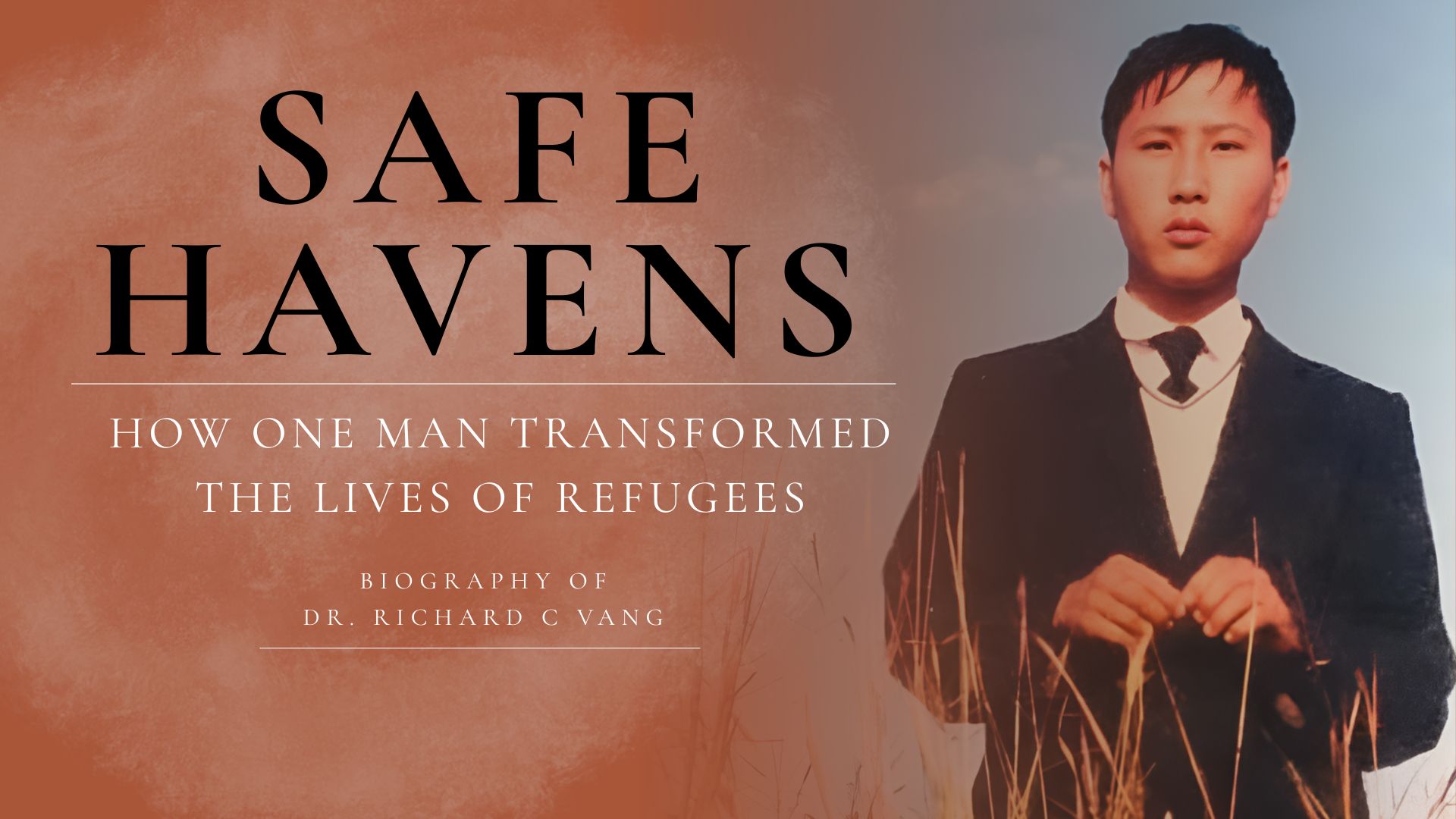

"Service to others is the rent you pay for your room here on Earth"
Dedication
“A father’s legacy is not measured by the possessions he leaves behind, but by the values, courage, and strength he instills in his children.”
This biography is lovingly dedicated to Dr. Richard C. Vang’s father, whose service as a CIA operative exemplified unwavering dedication and sacrifice.To a man who lived in the shadows to protect the light, your courage and resilience have been the foundation upon which this extraordinary story is built. Your strength in the face of unimaginable challenges, your commitment to duty, and your steadfast love for your family have left an indelible mark on your son and countless others. Through your example, you taught Dr. Vang the value of perseverance, the importance of serving others, and the courage to rise above adversity. Your legacy is reflected in every step of his journey—from his work with refugees to his efforts in creating safe and stable homes for vulnerable communities.
This book is a tribute to your memory, your sacrifice, and the profound impact you continue to have through the life of your son. May your story, intertwined with his, inspire generations to come.
With deepest gratitude and respect,
This is for you.
Phase 1: T he Beginnings
“The greatest glory in living lies not in never falling, but in rising every time we fall.” – Nelson Mandela
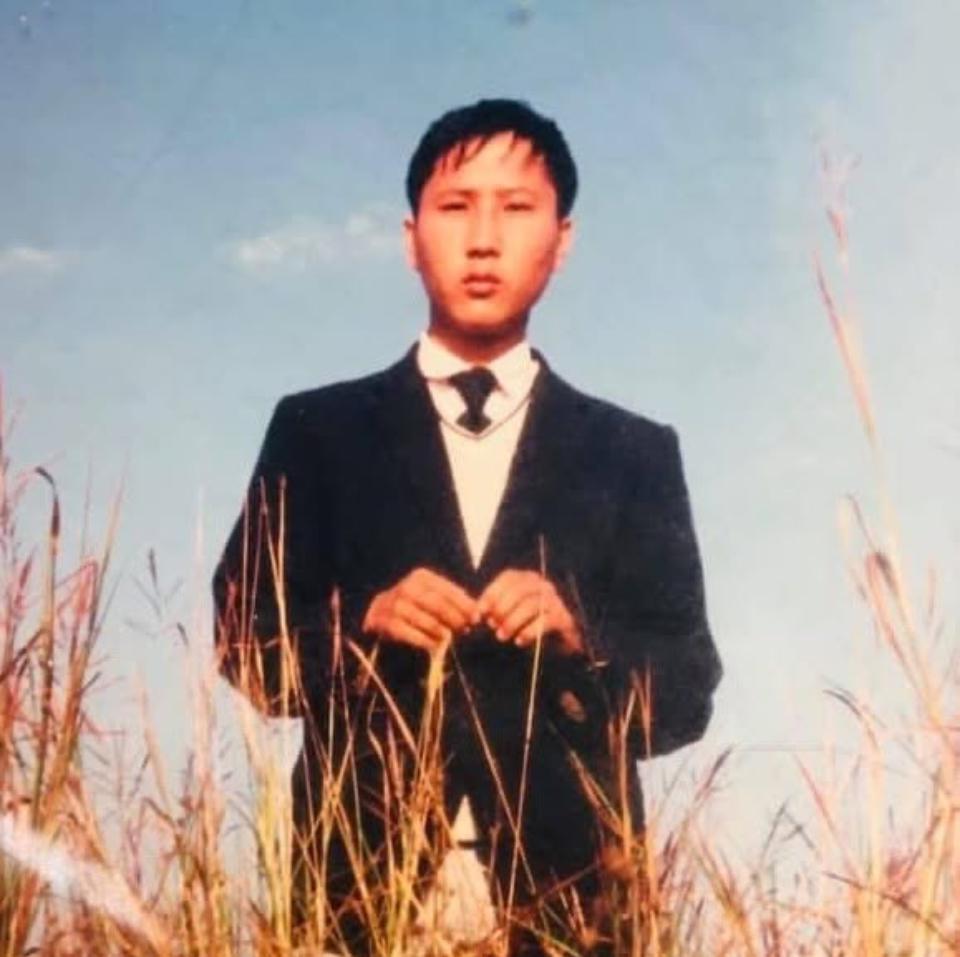
Dr. Richard C Vang’s journey began in 1966, at a time when the world was deeply embroiled in geopolitical tensions, particularly in Southeast Asia. He was born into the volatile and war-torn region of Laos — a place where the political unrest and the lingering effects of the Vietnam War permeated every aspect of life. Laos, often overshadowed in historical accounts, was deeply impacted by the war and had become a stage for covert operations and covert alliances that shaped the lives of its people. Dr. Vang’s early years were lived against this complex and often dangerous backdrop.
His father, a dedicated CIA operative, played a significant yet shadowy role in the intricate web of Cold War politics. As a CIA agent, he was involved in clandestine missions, providing intelligence and carrying out covert operations. To the outside world, his father was a symbol of authority and power, a figure who existed behind layers of secrecy and silence. For young Richard, however, his father’s occupation was a source of both awe and uncertainty. The nature of his father’s work meant that their lives were often in flux, shrouded by constant moves, secretive circumstances, and the ever-present danger that came with being part of such a volatile world.
While many children lived carefree lives, Dr. Vang’s formative years were defined by instability. His family’s relocation to different countries, the secrecy that surrounded their everyday existence, and the unspoken dangers that hovered over them were constants that shaped his early years. Yet, rather than stifling him, this uncertainty forged a young boy’s character. Dr. Vang was taught from an early age the importance of adaptability and resilience. His environment, though fraught with difficulties, nurtured within him a deep understanding of the complexity of life and the importance of survival in a world that seemed unpredictable and often hostile.
Though his father’s work demanded secrecy and precision, it also exposed Dr. Vang to the darker realities of international politics. The impact of the Vietnam War, the displacement of families, and the aftermath of countless covert operations all left indelible marks on the young boy. His early life was not without its challenges. It was, in many ways, a crucible for Dr. Vang, where he learned the values of determination, resilience, and service—values that would later define his career and life’s work.
As Dr. Vang grew older, he recognized that his father’s work, although shrouded in mystery, had indirectly instilled a deep sense of purpose in him. His father, though distant and enigmatic, had played a part in shaping the direction of his future. The lessons he learned during those early years would later resonate throughout his professional endeavors, particularly in his service to others and his commitment to leadership.
The quote from Nelson Mandela, “The greatest glory in living lies not in never falling, but in rising every time we fall,” encapsulates Dr. Vang’s approach to life. His childhood, fraught with adversity and hardship, was not one marked by easy victories or a smooth path. Instead, it was a journey of perseverance—of falling and rising, time and time again. His resilience, in the face of uncertainty and difficulty, became the foundation upon which he would build a life dedicated to service, leadership, and unwavering commitment to helping others.
In this chapter, we glimpse the early struggles that shaped Dr. Richard C Vang. While his childhood may have been marked by secrecy and hardship, it was also filled with lessons in resilience, tenacity, and a sense of duty—values that would define the path he would take as he matured into a compassionate leader and advocate for those in need. The shadows of his early years would cast a long influence on his future, guiding him as he rose above adversity to create a legacy of service and care for others.
Phase 2: A Life in Transition
“It does not matter how slowly you go as long as you do not stop.” – Confucius
The journey of Dr. Richard C Vang from the turmoil of Southeast Asia to the United States marked a profound transition—a shift from the uncertainty of his early life to a future filled with purpose and service. His life had been one of constant change, shaped by his father’s covert work with the CIA and the upheaval of growing up in the midst of geopolitical struggles. Yet, as he crossed into adulthood and set his sights on the United States, Dr. Vang found himself not only adapting to new circumstances but also defining the path he would take in the years ahead.
In 1980s Laos, the scars of war and its aftermath were ever-present, and for someone like Dr. Vang, whose upbringing had been so heavily influenced by the complexities of international politics, the decision to seek a new life in America was driven by the desire for both personal growth and the opportunity to contribute to the broader world in a meaningful way. By the time he arrived in the United States, Dr. Vang was already deeply attuned to the struggles of people who had faced similar hardships — displacement, loss, and the search for a place to call home. This shared experience would become the cornerstone of his future endeavors.
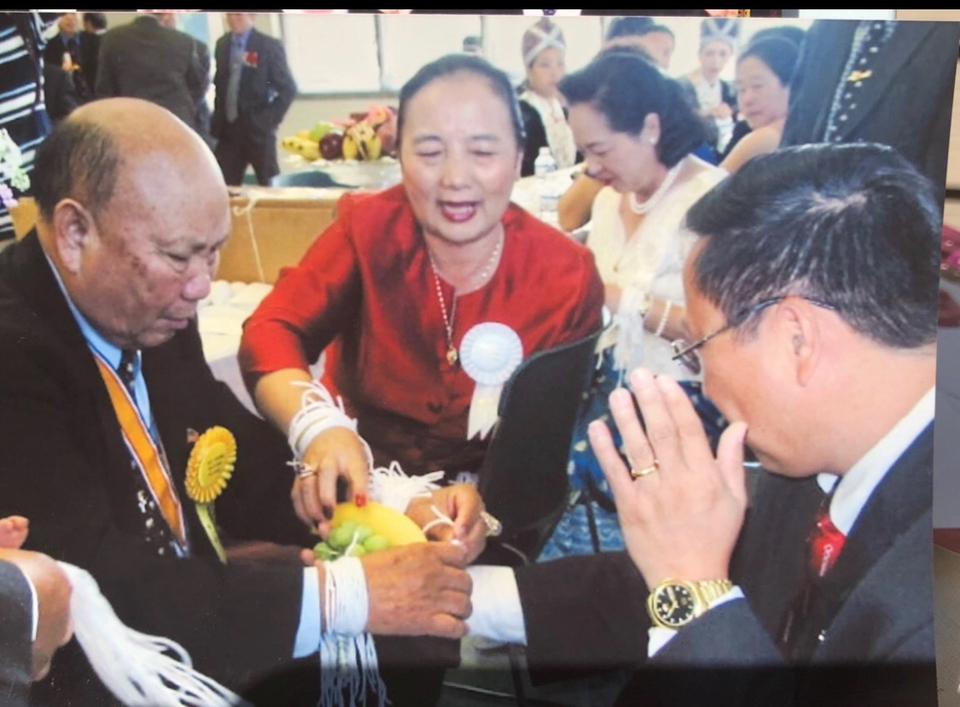
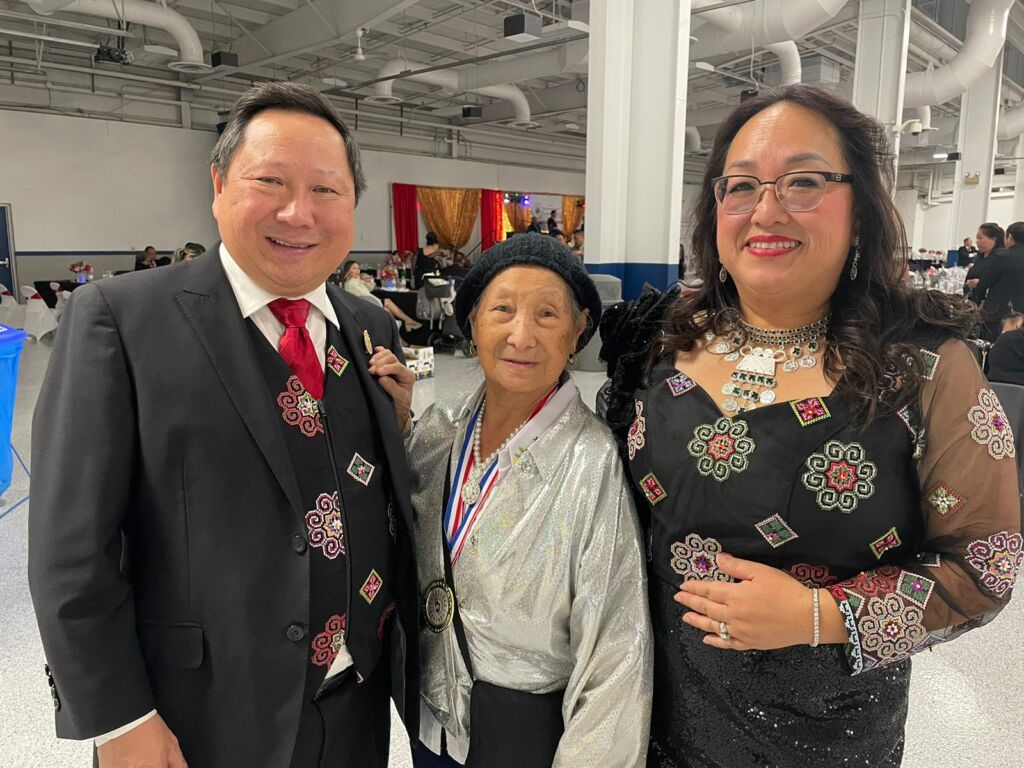
Arriving in the U.S. marked a new chapter in Dr. Vang’s life—a chapter of gradual but relentless evolution. While the transition was not without its challenges, it was during this time that his identity as a bridge between cultures and a voice for those displaced by conflict began to take shape. Dr. Vang was not a passive observer of the world around him. The words of Confucius—“It does not matter how slowly you go as long as you do not stop”—echoed in his mind, reminding him that the progress of life, no matter how gradual, is ultimately defined by perseverance and commitment. His transition from a war-torn region to a land of opportunity was not a sudden leap, but rather a steady journey that reflected both his personal resilience and his growing desire to serve others.
In the early 1990s, after settling in the U.S., Dr. Vang recognized that his path was not just about adapting to his new environment; it was about making a tangible impact in the lives of others who had experienced the same dislocation and hardship he once knew. His background, rich with firsthand knowledge of the refugee experience, allowed him to empathize with and understand the struggles of those who had been displaced from their homes by war, conflict, or political instability. This sense of shared experience became the driving force behind his decision to dedicate himself to helping refugees and the community.
In 1980, while settled as a young teenage boy in Ban Vinai Refugee Camp in Thailand, Dr. Vang became actively involved with the Joint Volunteer Agency (JVA), an initiative operated by the American Embassy in Bangkok. The JVA’s mission was to assist displaced families in their transition to new lives, helping them navigate the complexities of resettlement, find jobs, housing, educations, and access the resources they needed to begin anew in the United States. For Dr. Vang, working with the JVA was not just a professional endeavor—it was a calling. It was here that his passion for service crystallized, and he discovered a deep-seated purpose in helping those who had suffered similar traumas as he.
At JVA, Dr. Vang worked tirelessly to support refugee families, advocating for their needs, and assisting them in preparing them for their new lives in other countries. He used his understanding of their struggles to provide essential resources. His work was deeply rooted in empathy and a desire to give others the opportunity for a fresh start, a hope for better, brighter future.
Phase 3: Highlander Home Healthcare and the Care of the Community
“The best way to find yourself is to lose yourself in the service of others.” – Mahatma Gandhi
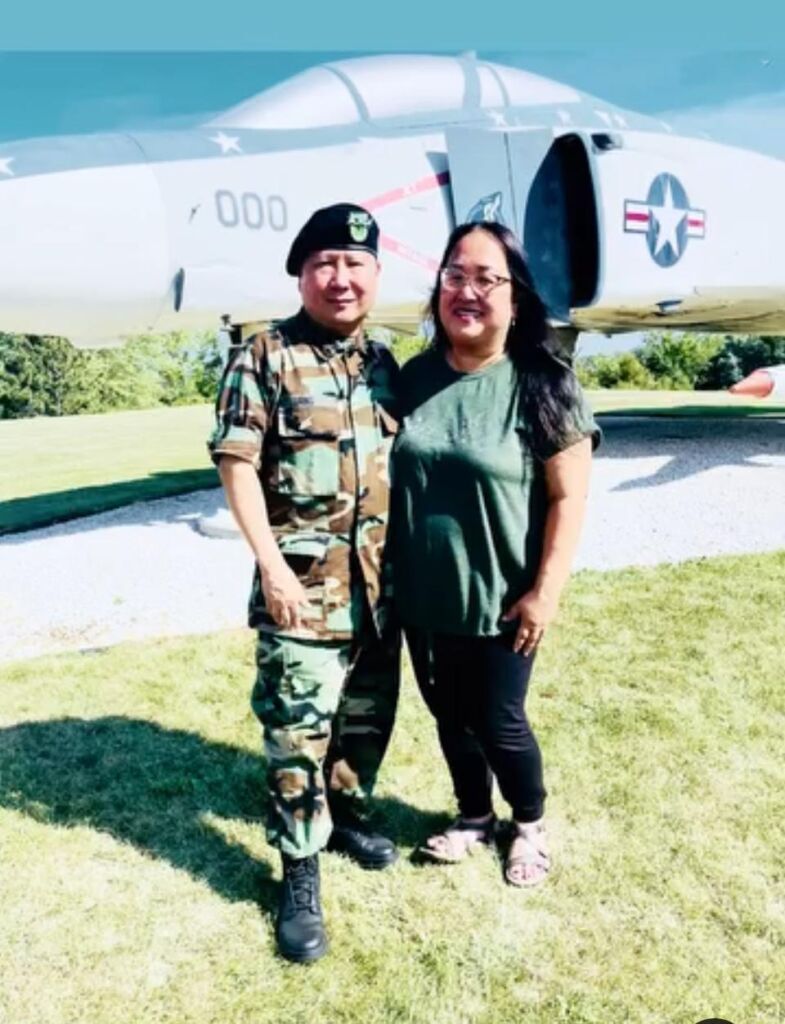
The journey of Dr. Richard C Vang from the turmoil of Southeast Asia to the United States marked a profound transition—a shift from the uncertainty of his early life to a future filled with purpose and service. His life had been one of constant change, shaped by his father’s covert work with the CIA and the upheaval of growing up in the midst of geopolitical struggles. Yet, as he crossed into adulthood and set his sights on the United States, Dr. Vang found himself not only adapting to new circumstances but also defining the path he would take in the years ahead.
In 1980s Laos, the scars of war and its aftermath were ever-present, and for someone like Dr. Vang, whose upbringing had been so heavily influenced by the complexities of international politics, the decision to seek a new life in America was driven by the desire for both personal growth and the opportunity to contribute to the broader world in a meaningful way. By the time he arrived in the United States, Dr. Vang was already deeply attuned to the struggles of people who had faced similar hardships — displacement, loss, and the search for a place to call home. This shared experience would become the cornerstone of his future endeavors.
Arriving in the U.S. marked a new chapter in Dr. Vang’s life—a chapter of gradual but relentless evolution. While the transition was not without its challenges, it was during this time that his identity as a bridge between cultures and a voice for those displaced by conflict began to take shape. Dr. Vang was not a passive observer of the world around him. The words of Confucius—“It does not matter how slowly you go as long as you do not stop”—echoed in his mind, reminding him that the progress of life, no matter how gradual, is ultimately defined by perseverance and commitment. His transition from a war-torn region to a land of opportunity was not a sudden leap, but rather a steady journey that reflected both his personal resilience and his growing desire to serve others.
In the early 1990s, after settling in the U.S., Dr. Vang recognized that his path was not just about adapting to his new environment; it was about making a tangible impact in the lives of others who had experienced the same dislocation and hardship he once knew. His background, rich with firsthand knowledge of the refugee experience, allowed him to empathize with and understand the struggles of those who had been displaced from their homes by war, conflict, or political instability. This sense of shared experience became the driving force behind his decision to dedicate himself to helping refugees and the community.
In 1980, while settled as a young teenage boy in Ban Vinai Refugee Camp in Thailand, Dr. Vang became actively involved with the Joint Volunteer Agency (JVA), an initiative operated by the American Embassy in Bangkok. The JVA’s mission was to assist displaced families in their transition to new lives, helping them navigate the complexities of resettlement, find jobs, housing, educations, and access the resources they needed to begin anew in the United States. For Dr. Vang, working with the JVA was not just a professional endeavor—it was a calling. It was here that his passion for service crystallized, and he discovered a deep-seated purpose in helping those who had suffered similar traumas as he.
At JVA, Dr. Vang worked tirelessly to support refugee families, advocating for their needs, and assisting them in preparing them for their new lives in other countries. He used his understanding of their struggles to provide essential resources. His work was deeply rooted in empathy and a desire to give others the opportunity for a fresh start, a hope for better, brighter future.